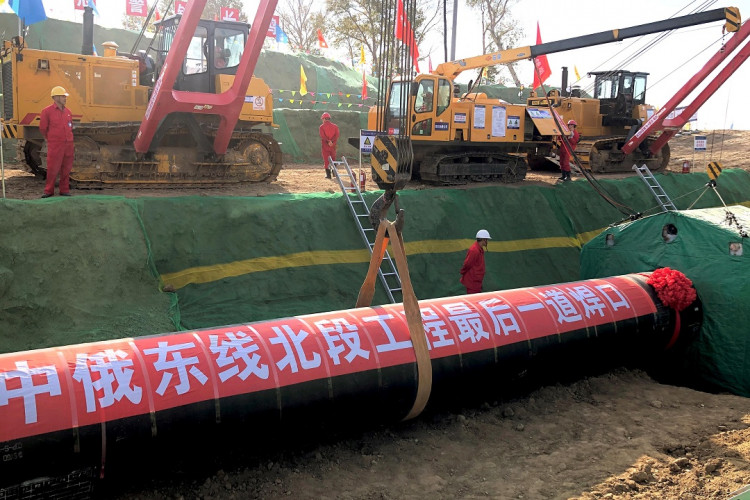Three of China's largest state-owned oil and gas companies have now combined their oil pipelines into a single network to form a consolidated line aimed at ensuring supply and improving overall delivery efficiency.
The consolidated oil pipeline network, which will be operated by a newly formed entity called the National Oil And Gas Pipeline Network Group, was officially established on Monday. The newly formed group will own around $71 billion in combined assets.
National Oil And Gas Pipeline Network Group has been tasked to manage the consolidated pipeline network, which is planned to be expanded in the coming years. The asset transfer from the three state-owned companies are expected to be completed in the second half of 2020.
The new company will reportedly be headed by Zhang Wei, the current general manager of CNPC. China's Assets Supervision and Administration Commission (Sasac) of the State Council will be the majority owner of the newly formed entity.
The combined pipelines from state-owned companies Sinopec Group, China National Offshore Oil Corporation (CNOOC), and China National Petroleum Corporation (CNPC) is expected to greatly improve the country's wider energy infrastructure.
CNPC, Sinopec, and CNOOC saw their stock prices surge in Shanghai and Hong Kong following news of the inauguration of the combined oil pipeline network.
The consolidation is part of the country's deeper oil and gas reforms to ensure its energy stability as well as its program to combine state-owned entities into fewer but larger groups. The move is also part of China's commitment to ease its dependence on coal, which it plans to achieve by overhauling its energy industry and slowly shifting to cleaner sources of energy.
The consolidated network is mostly comprised of oil pipelines previously owned by CNPC. The company provided 69 percent of the consolidated pipelines used for crude oil, 76 percent for natural gas, and 43 percent for refined oil.
The planned expansion of the consolidated oil pipelines, which had been under consideration since 2014, will include a proposed 80 percent increase in length to 240,000 kilometers by 2025. The merger is the latest in a line of planned consolidations of state-owned firms, which started with a similar infrastructure consolidation in 2014.
China previously combined the telecommunications and data transmission towers of China Unicom, China Telecom, and China Mobile in 2014. A new state-owned entity called China Tower Corporation was formed to manage the new combined equipment. Last year, China Tower managed to raise more than HK$58.8 billion during its initial public offering (IPO) in Hong Kong.





